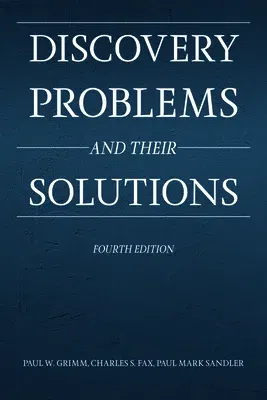Today, lawyers and clients devote a great deal of time, effort, and
expense to discovery. More often than not, discovery, and not trial, is
the central battleground of a case. Most civil lawsuits in federal court
end before trial, either by pretrial settlement or on dispositive
motion. In either case, the fruits of discovery can be critical to the
outcome. The need for analytical and strategic guidance on problems in
discovery is heightened by the fact that much of it is handled by
relatively inexperienced lawyers, and in the case of document
production, legal assistants. Effective discovery is crucial.
This book is written to address that need. It describes the problems
that civil litigators encounter most frequently in pretrial discovery
and presents suggestions and strategies for solving these problems.
Following a background discussion on the scope and types of discovery,
discovery problems are presented as hypotheticals (many of which the
authors have encountered in their experience) followed by a discussion
that includes the law and helpful practice tips. In this edition,
particular emphasis has been placed on discussion and interpretation of
the new rules, and evolving case law, concerning discovery of
electronically stored information (ESI).

